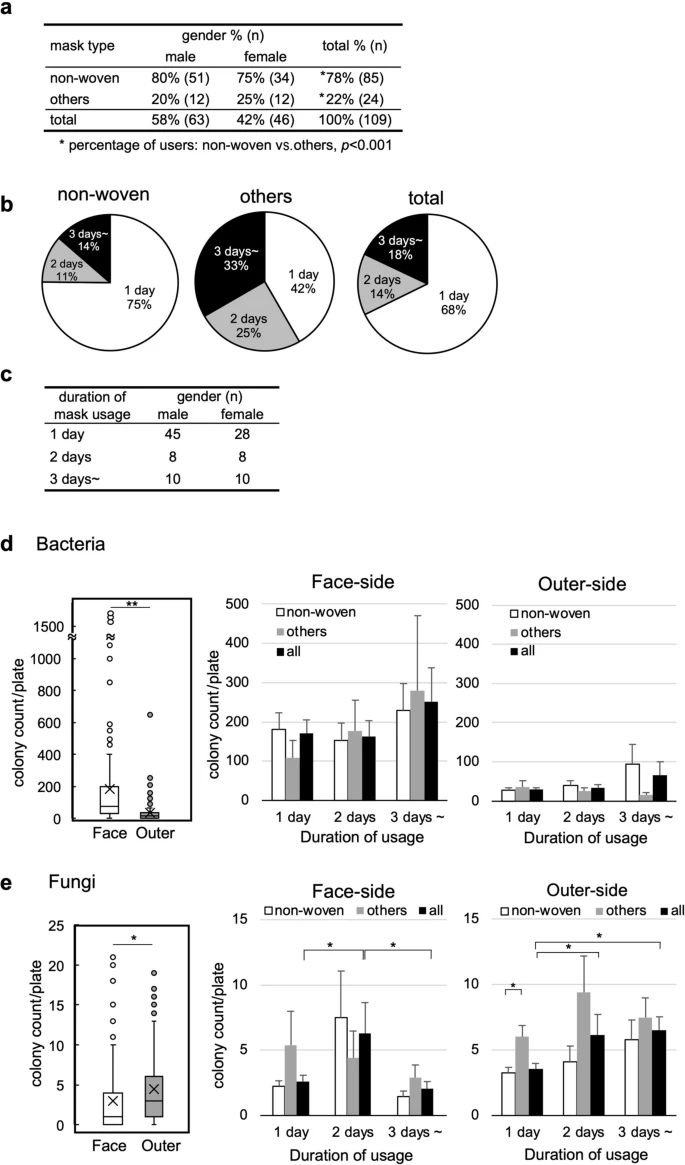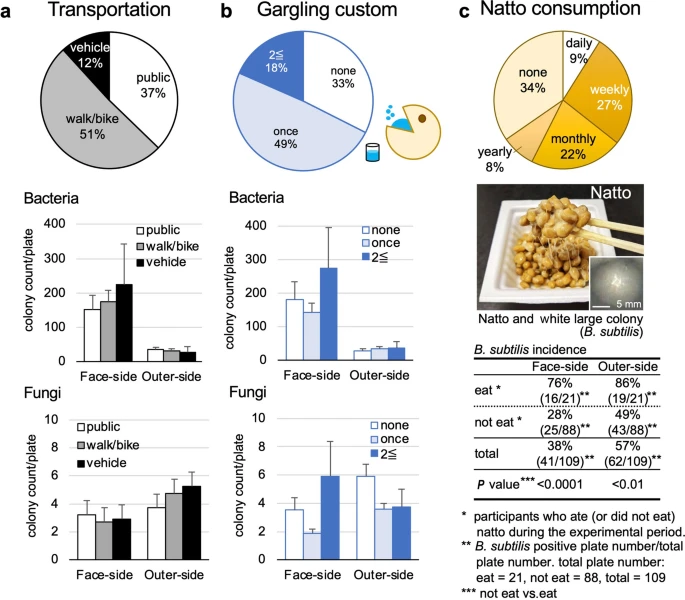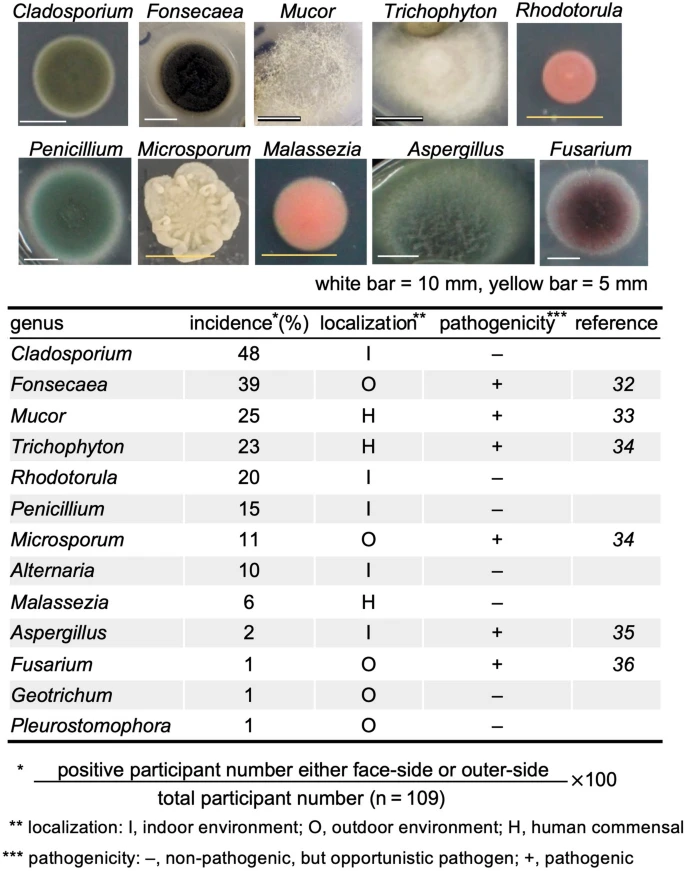Long term mask usage may not be safe for immunocompromised people Japanese study finds
Published: 18 July 2022
Open Access
https://www.nature.com/articles/s41598-022-15409-x#Tab1
Park, AM., Khadka, S., Sato, F. et al. Bacterial and fungal isolation from face masks under the COVID-19 pandemic. Sci Rep 12, 11361 (2022) https://doi.org/10.1038/s41598-022-15409-x
Several pathogenic microbes were identified and quantified on masks worn during the pandemic, according to a Japanese study that was published in Scientific Reports.
The study is one of the first to address the probable hygiene issues caused by bacterial and fungal growth on masks worn daily in the community.
“Since masks can be a direct source of infection to the respiratory tract, digestive tract, and skin, it is crucial to maintain their hygiene to prevent bacterial and fungal infections that can exacerbate COVID-19,” the authors wrote.
The study involved 109 participants aged 21 to 22 years who were asked about the type and duration of mask used and their lifestyle habits. Bacteria and fungi were collected from the three types of masks—gauze, polyurethane, and non-woven—worn between September and October 2020.
The researchers found that the face side of the masks had more bacteria, whereas the outer side of the masks contained more fungi.
In addition, longer use of the mask resulted in an increase in fungi but not in bacteria because “fungi and their spores are resistant to drying, they can survive under the condition where masks dry out.”
Non-woven masks were found to have fewer fungal colony counts on the outer side compared to the other two mask types. Non-woven masks have three layers, two-layer fabric with a non-woven middle layer filter.
Researchers said they were surprised to find that there were no significant differences in the numbers of bacteria or fungi on washable or reusable masks that had been washed.
“The proper cleaning method for cotton face masks has been recommended to reduce the microbial load on the masks,” the authors wrote. “However, in the current experiments, we did not find significant differences in bacterial or fungal colony numbers on the masks based on washing.”
Abstract
https://www.nature.com/articles/s41598-022-15409-x#Tab1
The COVID-19 pandemic has led people to wear face masks daily in public. Although the effectiveness of face masks against viral transmission has been extensively studied, there have been few reports on potential hygiene issues due to bacteria and fungi attached to the face masks. We aimed to (1) quantify and identify the bacteria and fungi attaching to the masks, and (2) investigate whether the mask-attached microbes could be associated with the types and usage of the masks and individual lifestyles. We surveyed 109 volunteers on their mask usage and lifestyles, and cultured bacteria and fungi from either the face-side or outer-side of their masks. The bacterial colony numbers were greater on the face-side than the outer-side; the fungal colony numbers were fewer on the face-side than the outer-side. A longer mask usage significantly increased the fungal colony numbers but not the bacterial colony numbers. Although most identified microbes were non-pathogenic in humans; Staphylococcus epidermidis, Staphylococcus aureus, and Cladosporium, we found several pathogenic microbes; Bacillus cereus, Staphylococcus saprophyticus, Aspergillus, and Microsporum. We also found no associations of mask-attached microbes with the transportation methods or gargling. We propose that immunocompromised people should avoid repeated use of masks to prevent microbial infection.





